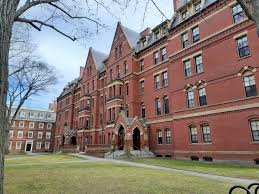Trump Threatens Harvard Funding Over Political Dispute
President Donald Trump has escalated his confrontation with Harvard University by proposing to withdraw $3 billion in federal funding from the prestigious institution and redirect those resources to scientific, engineering, and business-oriented educational programs. The announcement, made through Trump’s Truth Social platform on Monday, represents the latest development in an ongoing battle between the administration and America’s oldest university.
The threatened Harvard funding cut follows several weeks of tension between the White House and the Ivy League institution. Just days before this latest move, the administration’s attempt to restrict international student enrollment at Harvard was temporarily blocked by a federal court. Trump’s targeting of Harvard funding appears part of a broader effort to increase government oversight of the university, which the president has repeatedly accused of political bias.
In his social media posts, Trump alleged that Harvard has become dominated by Democratic and radical leftist influences – claims the university has firmly denied. The administration’s actions against Harvard funding have already prompted legal challenges from the university, which argues the measures represent improper government interference in academic affairs.
The $3 billion in Harvard funding under discussion originates from Congressional appropriations to the National Institutes of Health, primarily supporting biomedical research that typically falls outside the scope of commercial educational institutions. This raises questions about the feasibility of Trump’s proposal to redirect these specialized research funds to different types of schools.
It remains unclear whether Monday’s announcement represents a new policy initiative or simply reiterates previous threats to Harvard funding. Neither Harvard administrators nor White House officials offered immediate comments on the latest development. The situation highlights growing tensions between the federal government and higher education institutions over questions of academic independence and the politicization of university funding.
Education policy experts warn that such moves against Harvard funding could establish dangerous precedents for political interference in academic research priorities. The conflict comes at a sensitive time for American universities already struggling with pandemic-related financial challenges and increasing scrutiny of their institutional policies. As the standoff continues, many in the academic community fear the Harvard funding dispute may signal broader attempts to reshape higher education according to political rather than scholarly considerations.
The controversy also raises fundamental questions about the appropriate relationship between government and private educational institutions, particularly regarding research funding that has traditionally been awarded through competitive, merit-based processes rather than political considerations. The outcome of this Harvard funding battle may have lasting implications for academic freedom and the future of federal support for higher education research nationwide.
Go To Main Page

